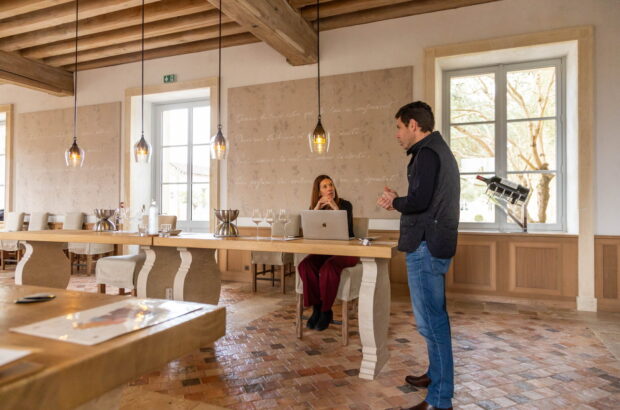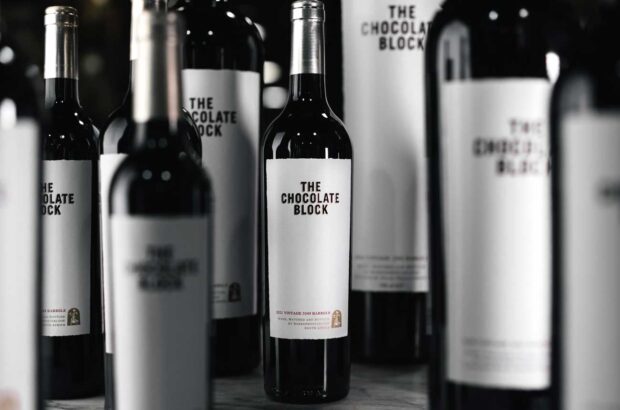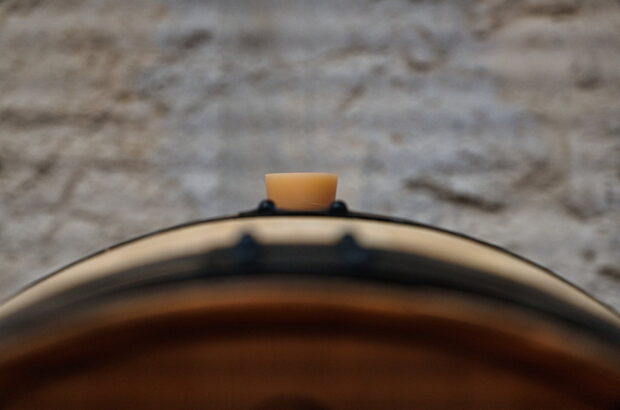A technology entrepreneur and thought leader in product innovation, Ron has 20 years’ experience in software development, security and IT infrastructure. He drives the overall strategic vision for Enolytics, which provides data analysis and reporting solutions for the wine and spirits industry, ensuring the security of valuable data assets for the company and its clients.
How did you get here?
I’ve always been interested in technology. I’ve been programming since my dad brought home our first Commodore computer. The tinkering at home led me to studying electrical engineering in college, and my career started out with Accenture as a technology consultant. During that time, I had various technology roles in the banking, military and retail sectors followed by 10+ years in healthcare before joining the wine industry. My passions are in security and machine learning, especially the new AI landscape.
What’s the best thing about your job?
I really enjoy solving problems, in both business and technology, and there’s always an interesting problem to solve. The coolest part about integrating AI into business is that it’s a blank canvas. It’s very exciting experimenting to see what works and what doesn’t and trying to mould the technology to perfect the results.
What’s the worst?
Hackers! As a CTO, the risk always has to be at the forefront of your mind. The fact that malicious actors are out there trying to break down the walls that you have built is a reality that every CTO/CIO must be prepared for.
What’s your greatest moment, professionally?
Building a Software as a Service (SaaS) platform from the ground up – which is what we’ve done with Enolytics – has been a great accomplishment. What we’ve done and what we’re doing is very satisfying. I’m very proud of it.
And your greatest mistake?
My final project in college involved building an Electronic Medical Records (EMR) system. This was back in the 1990s, when everything in healthcare was recorded on paper and as far as I know this was one of the first EMR systems in use. But I didn’t have the business acumen at the time to turn my software into a business on its own. It was an opportunity that I missed. I look back and think, what if I had been better at sales and marketing at the time?
What skills and/or qualities do you need to be successful in your profession?
The foundation, of course, is a solid mastery of technology fundamentals. You also need to have a lot of patience, and you need to love encountering problems that look daunting and insurmountable. You need to be persistent enough to pick away at them until you can find a solution. Finally, you need to have a good understanding of the business challenges. At the end of the day, the technology is just a tool to help you formulate solutions.
In which areas is AI making the most impact in the wine industry today?
Generative AI is already having a big impact in business with simple things like helping to write marketing material, creating images and summarising documents. Machine learning has been used for years for market and industry predictions as well as streamlining business processes. Right now, wineries are getting much better at understanding the customer likes, dislikes and preferences. This interaction with the wine consumer will get better and more tailored as the technology improves.
What are the biggest misconceptions about the use of AI in wine?
I think one of the biggest misconceptions around the use of generative AI is centred in a misunderstanding of the safety of the tools. We have seen horror stories of data leaks and bots that are watching your every move. As with most things there is some element of truth in the stories, but the fact is that when implemented appropriately your data can remain safe and unintentional data leakage can be prevented.
Using many of the ‘free’ tools with out-of-the-box settings does have a cost. You are providing your data to those tools for training purposes according to their licensing models. When implemented correctly with a competent vendor partner, data leaks can be prevented with the use of commercial licensing and in many cases with legal protections from incorrect answers from the model.
What’s the biggest benefit to consumers of AI in wine?
I think consumers are going to start to see real benefits in many areas of their lives when AI personal assistants start becoming mainstream. Imagine a world where you have your own personal wine connoisseur tagging along to tasting rooms and restaurants. The AI will be able to recommend wines with food pairings, learn your wine preferences and even help you remember what you ordered at that restaurant last time so that you can have the wine again or perhaps try something new. Never again will you need to worry if that wine you gifted your friend was a good one!
Which AI initiative are you currently working on that excites you the most?
I’m very excited about Enolytics AI. We’re working on ways to help wineries understand the most important parts of their business, and to help them to generate the wines that their customers are wanting to experience.
AI is here. It’s a tool that is going to be very helpful in the wine world. It’s going to change the way we interact with everything in our daily lives. Some of that change will be good. Some of it will create problems that we have to solve. I’m excited about solving those problems.
Is there a place in the wine industry for a technologist like you?
Yes, now there is. The increased use of data and an advancement in the level of technology is needed more now than ever before. The AI buzz is trickling through the wine space too, and it’s created room for people with my skill set to be engaged. Enolytics is helping to move the needle on that.












